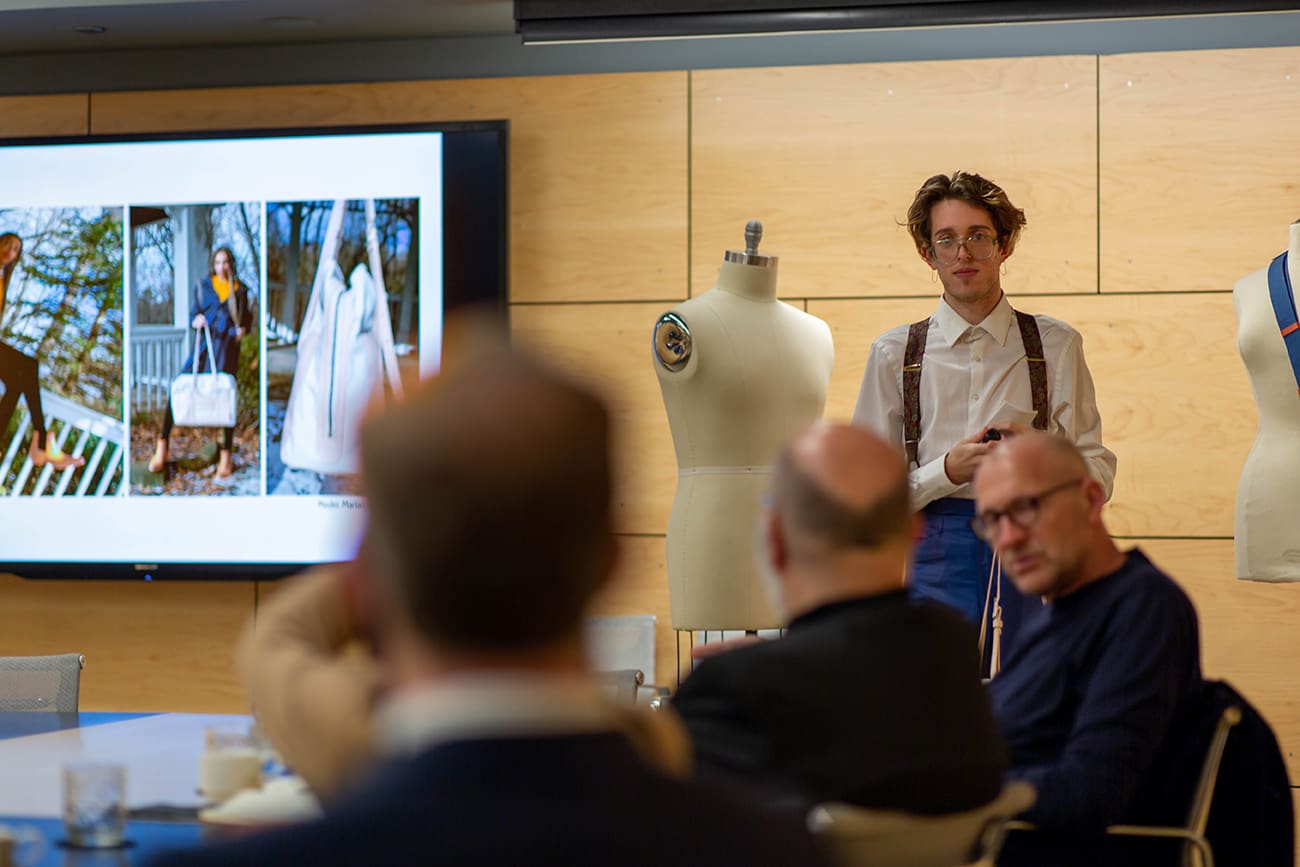President’s Blog – Experiential Learning: Fundamental to Student Success
November 29, 2021
The anatomy of higher education can look the same for many students. Go to class, take tests, complete assignments and projects—but how do students apply skills learned in the classroom to the world outside of higher education?
At CCS, we define Experiential Learning as “learning by doing.” When students are engaging in experiential learning, they are given the opportunity to connect the skills that are learned in the classroom to real-world situations.
Experiential learning can take place both inside and outside of the classroom. Co-curricular activities take place outside the classroom and do not earn academic credit. Complementing the formal curriculum, they include volunteer opportunities, exhibitions and not-for-credit internships. Curricular experiential learning is embedded within academic programs and is credit-bearing. It can include educational projects and partnerships with external partners, research, global exchange or internships for credit.
This kind of learning is important because it offers a practical space for students to practice and develop those skills, so that they’re ready for work upon graduation.
Experiential learning has been core to a CCS education for many years through educational partnerships in the classroom, internships, global experiences and more. This semester alone, 26 students are engaged in for-credit internships and 9 industry partners are working with students and faculty in our classrooms. Students are engaged in meaningful work opportunities in many of our departments, whether designing the 2022 Cumulus Conference brand, developing Detroit Month of Design festival materials, or working as teaching artists in Community Arts Partnership.
But we know our students need even more, across all majors. As a result, we’ve made this an important strategic priority of the college and have already taken steps to move this priority forward. This past summer, we incentivized taking internships for credit by dramatically reducing the cost to essentially a processing fee for the course, a 90-percent decrease. We’ve worked to code curricular experiential learning courses so that students can easily identify them on their academic transcripts. We also reorganized our Career Services and Corporate Relations teams into a new Office of Partnerships in order to increase industry and community partner outreach and engagement with our students, staff and faculty to drive new and expanded experiential learning opportunities. Having launched September 1, the Office of Partnerships is off and running. With a strategic plan tailored to the unique needs of all of our majors at CCS, the office strives to provide all students with a meaningful experiential learning opportunity.
In the Winter 2022 semester, we plan to launch the “My Peacock Pathway” initiative through our student engagement platform. “My Peacock Pathway” will help students identify and understand how co-curricular experiential learning can help them develop certain skills that will help them take their next steps once they graduate. The platform will guide students through their experiential learning journey while at CCS and provide a co-curricular transcript upon graduation.
I am so excited about this work, not only because of the benefits to our students but also for all of our industry and community partners. By increasing our experiential learning offerings, CCS will offer more organizations an opportunity to tap into our students’ creativity and problem-solving skills. More and more companies are coming to understand the transformative power of creativity within their organizations. McKinsey and Company has published multiple reports linking creativity and design to business value, including 2018 Business Value of Design and their research showing that companies with an Award Creativity Score (ACS) in the top-quartile had 67-percent higher organic revenue growth compared to other companies. CCS aims to be a top supplier of the creative talent that organizations need to solve the world’s most challenging problems.
